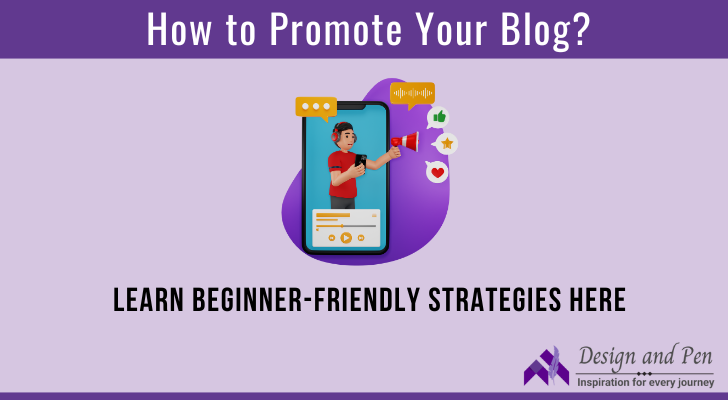Struggling to find a blogging niche? It is okay you do not have a niche for yourself yet. By the end of this article, you will have a solid idea and will be able to figure out the best fit for you with my live example.
The blogging business is growing so fast these days. It has so many benefits that you can work from anywhere and anytime.
Hence, people from different backgrounds are opting for a blogging business. Also, one of the reasons is that people want to be their boss. I hope you want to be one too. Is it?
A little about me:
I started blogging because I am passionate about writing. Although I am a full-time employee at Amazon, I wanted a side hustle supporting my income source.
And, I believe that if you do something you love, you can enjoy it while working and earn some bucks. However, a reason or goal for starting a blog is not sufficient.

Firstly, you will need a niche to begin with. I will talk about niches and how to find your blog niche in the coming sections. But, for now, think of this as a topic for your blog.
Though you start without deciding what to write, you may not understand what to write after a few months and years.
As there are so many niches online, it is difficult for beginners to find a blogging niche.
Even I was in the same situation. So, with this article, I want to help beginners like you in your blog niche selection so that you can find the best fit for you.
Let me take you along on my journey!
What is a Niche?
As I said earlier, a niche is nothing but a topic on which you want to create your content. In addition to that, there is much more. So, I know, like everyone else, your focus will be on starting a blog.
However, it is crucial to turn your attention, towards finalizing your niche before creating your content. Along with your blog, selecting your niche is also a part of your blogging journey.
Why Should You Have a Niche?
Now comes the curious part. Since the beginning of the article, I have been saying niche. But you may wonder, why should I have a niche?
Let me cover that now. When starting a new work/hobby, we all start with great motivation, right? But the problem arises at the time when the motivation ends.
It is the same with blogging. While researching, you may come up with huge niches available online. But we cannot create content on all of them, correct?
Therefore, you will have difficulty producing content after a few months or a year without a niche.
Further, finding a niche from your experience/profession/knowledge is essential for this. As a result, you will have potential and authority in a specific area that declares you as an expert.
7 Steps to Discover Your Ideal Niche
With the previous section, I hope you know why niche is crucial for your blog. Now, in the coming sections, I would like to share my real-life example of how I chose my niche for my blog.
Also, the step-by-step process helps and gives you an answer to “How to choose a niche?” Come with me to find out what is the most profitable blog niche.

Step 1. Identify Your Interests
I was worried about how to come up with a niche for my blog when I thought of blogging as my side hustle.
Firstly, for that, you need to start observing your day-to-day activities. Initially, I did the same monitoring the activities closely and categorizing them as topics.
In my everyday life, I like to spend more time improving myself whenever and wherever I can. Also, I love to keep my surroundings and everything related to me organized.
Then, I knew only these two and categorized them as self-development and organization. Nothing else came into my mind. But I started to analyze more details and motivated myself reminding that identifying these interests is not a one-day task.
It seemed so daunting for me because I never focused on identifying these. Thus, I believed in myself and searched online for better inspiration that would support my research.
As a next step, I started researching more and found videos related to blogging and UX design.
— Immediately, I got connected to it and related my journal writing experience with blogging and designing activities with UX design.
Besides my daily tasks, I love writing my journal every day and letting my thoughts go away. I find this so relaxing and happy when I write.
Coming to design, I am not a professional designer yet. But, when I design small stuff for my personal use in Canva, I lose track of my time and do it until I am satisfied.
Not only that, I enjoy designing and am curious to learn more when needed. That is it, I thought I found what I wanted.
Finally, I figured out my interests and topics –
- Self-development
- Organization
- Blogging
- UX design
Step 2. Assess Your Expertise
I figured out my interests, but is it sufficient to proceed? No, not yet. We should also see our expertise. You know that if you use your existing knowledge, you can build better credibility online.
Even though you are not an expert, you should have some basics and ideas. Because of this, you will get motivation to learn more which can give you a competitive edge when you blog.
Thus, to assess my expertise, I asked myself two questions.
- What am I good at?
- What are my skills and strengths?
As I got an idea of my topics in the previous sections, these questions helped me to dig deeper into the aspects of identification. Also, having a good answer to these questions, your blog could be helpful to your readers.
Step 3. Consider Audience Appeal
Now, I have my topics ready. But it is also crucial to research and see if these topics have the demand or not. And our niche should also cater to our target audience’s needs.
Because in the end, we write keeping our audience in mind and for them, right?
Thus, I started researching and trying to understand the demands of my interests as content topics. Also, the starting point for me was asking myself – “Would people be interested in what I share?”
By keeping this question in mind, I tried to get an answer, also wanted to ensure that my niche should align with my audience’s interests.
Finally, I figured out my definition of niche and it is –
Niche = my interest + my expertise + my audience’s needs & interests.
Step 4. Narrow Down Your Niche
Till now, we have seen how to find a blogging niche by identifying your interests and expertise and considering your audience’s needs.
Additionally, if your niche is particular, it helps you create content effectively. Firstly, you need to gain some knowledge and experience about the topic you are interested in.
Later, you can further narrow down your niche. What I mean by this is that, consider you have a broad category niche. After a point, covering so much content might not seem right for you.
At that particular time, you can narrow down your niche further. For example, your niche is about traveling. Indeed, there are many different topics you can cover within that traveling niche. But if that seems daunting, you can cut it down to solo traveling as your niche.
— Finally, you can start with a small one and add more topics to your niche if you prefer to, in the future, or you can stick to the same.
Additionally, while creating content, you will eventually understand what your preference is and what your audience’s needs are. As a result, you can tailor your content around that.
Step 5. Stay Authentic
As a next step, we have arrived at the point of building trust with our audience. That is because of the trust you build, your audience will come back to you.
For this, I avoided taking trending topics for the sake of just having a niche. So, if you avoid too, it can help you to find a blogging niche that is right for you.
Because, with trending topics, you may get benefitted in the beginning. But in the long run, you will not have profitable blogging niches with low competition.
As I said above, earning your reader’s trust is so crucial. Instead of having trending topics as your niche, document your experience, journey, and expertise – which will help you in the long run.
— Therefore, you will be YOU while creating the content for you. And that is where your audience will resonate with you the most.
Step 6. Explore Competition
I hope you are with me till here. Now, it is the time to learn from our competitors.
— As I mentioned earlier, my topics were Self-development, Organization, Blogging, and UX design.
Finally, I had to decide my niche or niches from these now. Therefore, I started researching more by looking at competitor’s websites and content. We should not think of them as direct competitors when I say competition.
Because we learn a lot from them and see what is working for them and what is not. As a result, we can understand and implement those according to our situations.
While I enjoy working on improving myself and staying organized, I concluded that Self-development and Organization would not be appropriate topics for my professional blogging business in the long run.
At last, I have taken blogging and UX design as my niche for my blogging journey. As I spoke in the previous sections about being authentic, I love to learn and share my journey and learnings with my readers on blogging and UX design.
The key learning here is that you research your topics for yourself and also learn from your competitors. When selecting niches, make sure they are searchable and widely demanded.
Finally, you should not worry about having a specific topic if nobody is searching for it.
Step 7. Test & Adapt
We have arrived at the final step to find a blogging niche. You should test your niche for yourself. Yes, you heard that right.
—Our niche may not be the same as the one we chose in the beginning for the long time. Because, you have flexibility and freedom on how to choose a perfect blog niche based on your reseach.
Furthermore, explore various topics and later adapt to the one that you have focused on. Try to test and understand what is working and what is not. But remember that your niche can change with time, and it is completely ok.
You will be able to understand as you learn and work more towards your niche and creating content. And with that, you will be able to get low-competition niches for Blog 2024.
Conclusion – Find a Blogging Niche
I am so happy that you are with me till the end. To summarize what we have learned, you should have a niche before you start your blog. In my journey, I was in a dilemma on how to find my niche.
But, by following each step carefully, I arrived at the topics I love and chose those as my niche. Also, you should be aware that finding a niche is not a one-day task.
Make sure you take your time and learn, and research until you find the right niche for your blog before jumping in. If not, later you will have to worry about how to write a blog after starting a blog.
Hopefully, this article and my experience helped you find a niche for your blog.
Now, comment below to let me know what is your niche and how did you find it? Also, if you have any specific questions, please feel free to ask. I’d love to hear them.
All the best!





